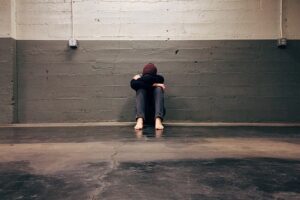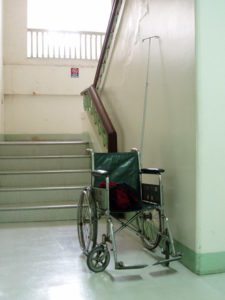 What Are Your Options If a Loved One Was Abused at an Autism Center?
What Are Your Options If a Loved One Was Abused at an Autism Center?
All across America, young people and adults with autism have found help and support at centers designed for their development. These institutions might be day centers or boarding facilities, or a mix of both. And they can have an enormous impact on a person’s life. But as an autism center abuse lawyer here in Memphis, I also know they aren’t without dangers.
What happens if a child gets abused at an autism center? Who is responsible? And what can we do to help?
 Higher Risks of Abuse for Autistic Children
Higher Risks of Abuse for Autistic Children
Children with autism run a higher risk of being abused – whether physically, emotionally, or sexually. Because they might struggle to communicate what happened to them, they can become an easy target for predators.
In addition, as with any special needs child, their care can sometimes be more individualized and private. This can give access to dangerous people who are able to get the child alone.
And in other cases, a caregiver at their school or facility might not intend at first to cause harm. They might lose their temper and commit abuse impulsively as a result of their anger. This behavior is no less acceptable than any other form of abuse.
And unfortunately, these risks don’t always go away as a child gets older. Autistic adults also suffer from a higher rate of abuse. Even adults who are able to get work and live independently run the risk of financial abuse, identity theft, and other forms of exploitation.
 The Overlap with Nursing Home and Other Institutional Abuse
The Overlap with Nursing Home and Other Institutional Abuse
The public doesn’t always think about cases like this, and in fact the problem persists in part because this form of abuse happens behind closed doors.
We see this often in nursing home abuse: the public doesn’t get outraged until they find out an abuse has happened, and then when the anger dies down, no broad regulatory changes take place.
Instead, it’s left to the families and the civil and criminal justice systems to force people and institutions to change.
In many cases, criminal justice might be necessary and appropriate. But sometimes much broader issues might be at play. For example, it’s important to prosecute someone who commits assault on an autistic child at their school. But if the school knew this person was a threat to others and allowed them to continue in their job anyway, shouldn’t they also be held liable?
Any facility that instructs, cares for, or assumes a role in the development of autistic children and adults has a duty to them and their family. They should give them the same care and respect any person in need might expect to receive in our society.
And it’s on the institution to make sure the people they hire and systems they have in place keep their wards safe.
 What You Can Do About It
What You Can Do About It
If you believe your loved one has been injured or abused at an autism center or special needs facility, a good autism center abuse lawyer can help you figure out your options.
By working with a personal injury lawyer, you can seek damages that help you cover your loved one’s continued care and recovery, along with payment for their pain and suffering. In addition, filing a lawsuit could make an enormous difference in the lives of other families who also might be at risk.
This system offers you the opportunity to hold wrongdoers accountable above and beyond criminal prosecution. Often that’s the best way to make sure this kind of abuse doesn’t happen again.
How Our Autism Center Abuse Lawyers Can Help
Our award-winning team is known for our compassion and respect. We treat our clients like family and take your emotional and physical needs seriously, with respect and care.
That’s how we’ve won multiple Martindale-Hubbell awards for client satisfaction, earned a 5-star rating on Avvo, and enjoyed an A+ rating from the Better Business Bureau for decades.
We offer a free consultation where we can discuss your situation and give you an idea of what to expect. We’ll look at whether there was a duty or standard of care, the facility didn’t comply with their duty, and someone was injured as a result.
There are no strings attached, and we don’t get paid anything unless and until we win your case for you.
To start with a free conversation, just give us a call at 901-327-2100 or contact us online for an appointment.
